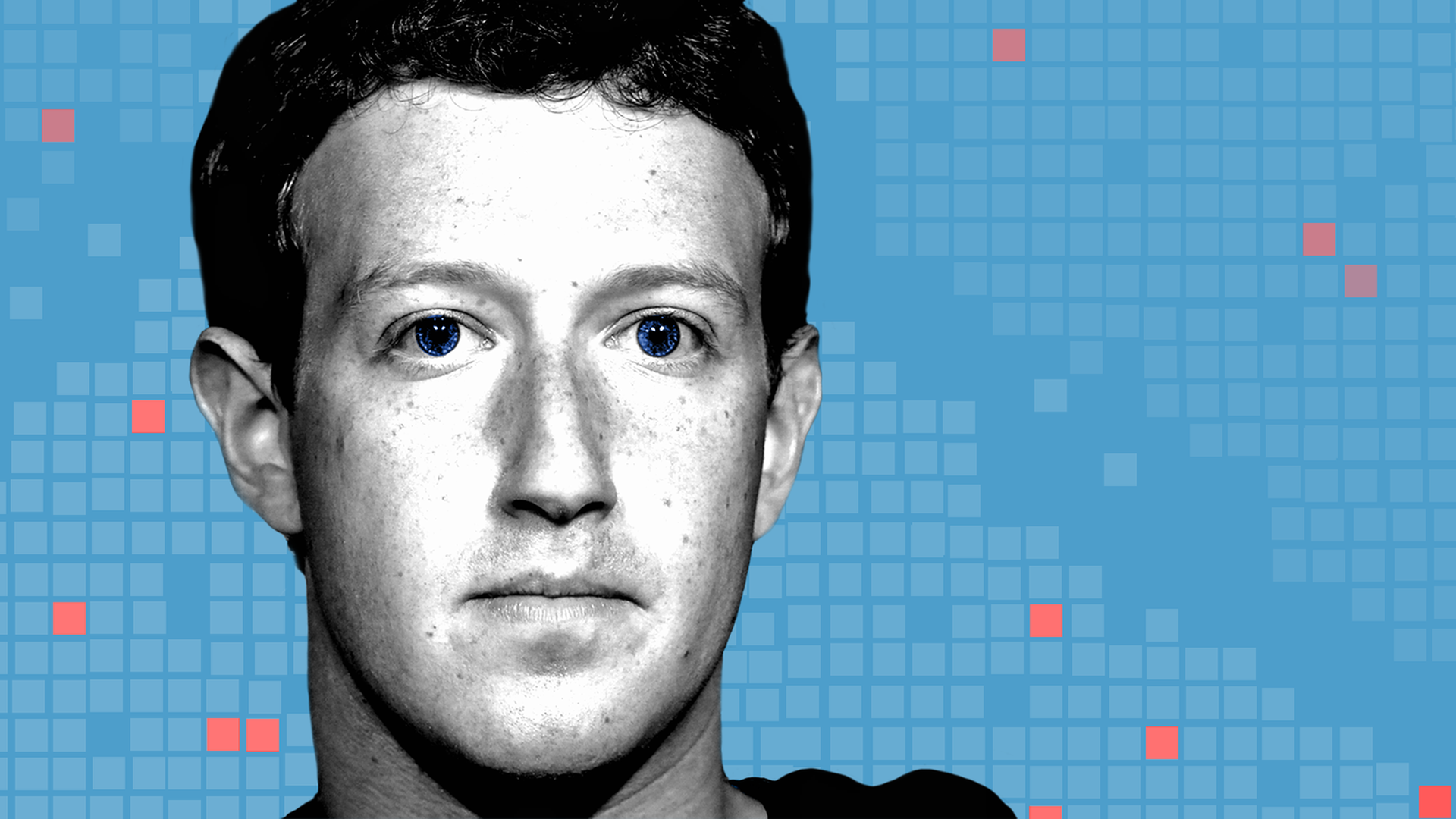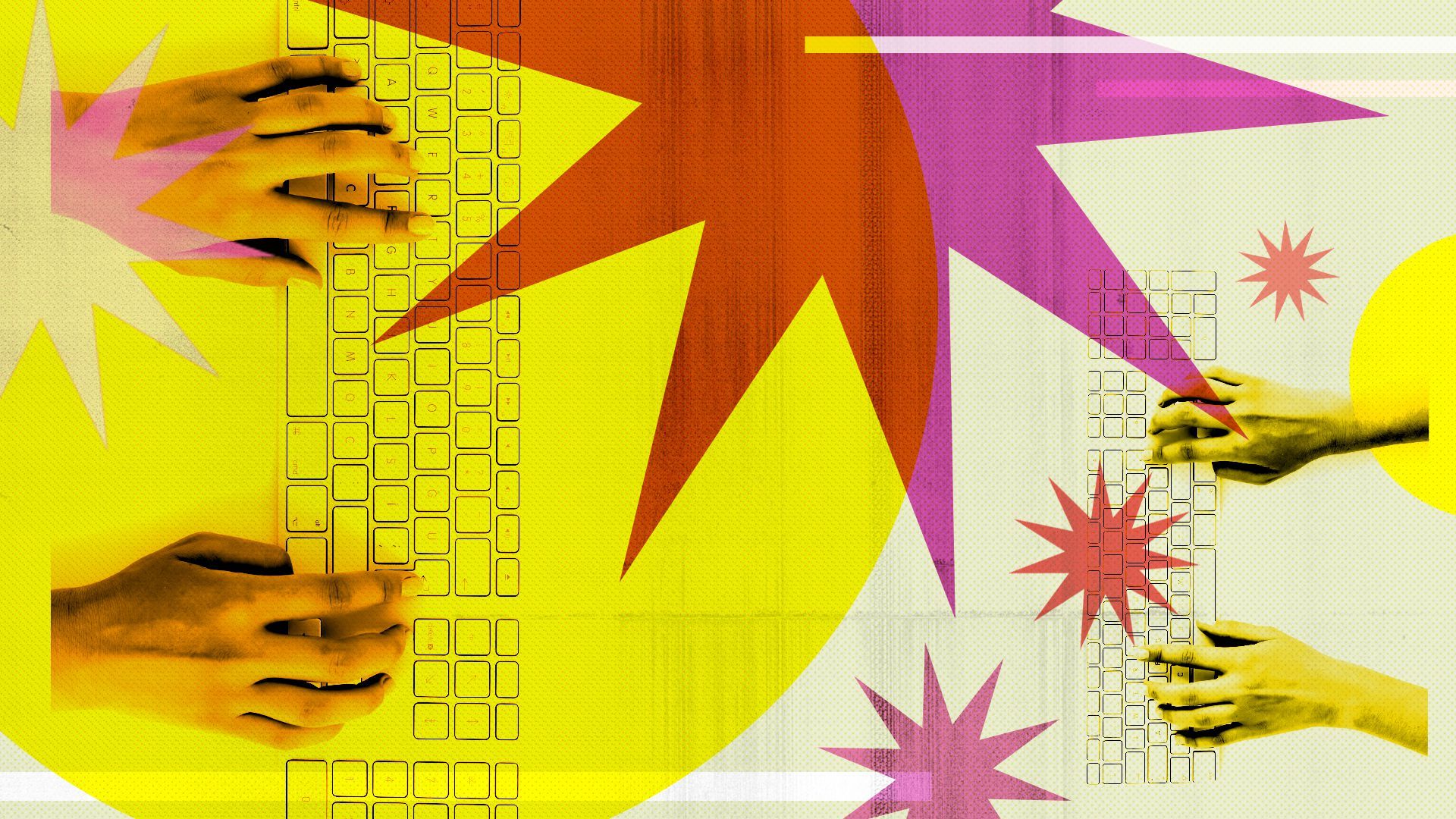| | | | | | | Presented By Computer & Communications Industry Association | | | | Axios Login | | By Ina Fried · Sep 12, 2022 | | Hello from New York. I'm on the East Coast for a bit, moderating at a few different conferences this week and next. 💻 Situational awareness: Reuters reports that President Biden plans to further limit China's access to chipmaking gear. Today's newsletter is 1,301 words, a 5-minute read. | | | | | | 1 big thing: AI-generated images open cans of worms |  | | | Photo illustration: Shoshana Gordon/Axios. Photo: Andy Warhol: 32 Campbell's soup cans via Flickr | | | | Machine-learning programs that can produce sometimes jaw-dropping images from brief text prompts have advanced in a matter of months from a "that's quite a trick" stage to a genuine cultural disruption, Axios' Scott Rosenberg writes. Why it matters: These new AI capabilities confront the world with a mountain of questions over the rights to the images the programs learned from, the likelihood they will be used to spread falsehoods and hate, the ownership of their output and the nature of creativity itself. - Their rapid evolution has also raised concerns over the future of jobs for graphic designers, illustrators and anyone else whose income is tied to the production of images.
Driving the news: Open AI's Dall-E 2 kicked off this revolution earlier this year, as programmers, journalists and artists granted early access to the program flooded social media with examples of its work. - Last month, another program, Stability AI's Stable Diffusion, arrived that offered a similar level of image-making prowess with way fewer restrictions.
Between the lines: Where Dall-E 2 is owned and controlled by Open AI, Stable Diffusion is open source, meaning anyone with a little skill can download and run it on their own systems. - That means that, while Dall-E 2 is now beginning to charge users, Stable Diffusion is essentially free.
- Where Open AI made some effort to limit questionable uses of its program — it says it has tried to reduce racial and gender biases in its training data, and it blocks users from creating violent images, porn, and celebrity pix — Stability AI is taking a mostly "anything goes" approach.
- Stability AI CEO Emad Mostaque told TechCrunch, "Aside from illegal content, there is minimal filtering, and it is on the user to use it as they will."
Our thought bubble: Multiple generations of digital tech have been rushed into large-scale use only to cause a wide range of social woes. AI was supposed to be different, but Stable Diffusion's "damn the torpedoes" approach suggests an "if it can be done, it will be done" mindset will prevail again. - That means we will have to cope with the reality-eroding impact of increasingly realistic fabrications sooner rather than later.
Catch up quick: The new image-producing AIs don't cut and paste from existing images but instead use a technique called "diffusion" that evolves a random dot pattern iteratively to produce a result that matches a pattern. - The programs need to be "trained" on vast pools of data.
- Where that data came from, what problems it might contain, and whether anyone should be compensated for its use are all questions that both devotees and critics of these programs are now asking.
It's not always easy to figure out what images a particular AI "learned" from, but blogger Andy Baio worked with programmer Simon Willison to create a tool for exploring one small portion of Stable Diffusion's training data. - The set seems to contain a considerable volume of copyrighted material and original artworks by artists unaware that their work had been used.
Meanwhile, art competitions and showcase sites are grappling with a potential flood of AI-generated images, with some online communities beginning to ban them. Flashback: Technology has been reshaping the arts forever. - The introduction of photography in the 19th century didn't end the work of painters, but it pushed them away from naturalism. Cinema did the same to theater. Recording changed music. Digital special effects continue to transform moviemaking.
- Art, by definition, involves an intentional act of human expression. AI can't do that by itself.
What's next: These programs are likely to keep getting more efficient and less distinguishable from magic. Their collisions with our existing systems of intellectual property law are likely to be epic. |     | | | | | | 2. High cost of losing tech race to China |  | | | Image courtesy of Special Competitive Studies Project | | | | The U.S. could miss out on trillions of dollars in economic growth if it fails to confront the growing technology threat posed by China, according to a new report from the Eric Schmidt-led Special Competitive Studies Project (SCSP). Why it matters: An American failure to challenge China would not only cost the U.S. economic growth and jobs; it would also let an authoritarian state call the shots for the world's digital infrastructure. What they're saying: "Imagine a world where China controls the global digital infrastructure, has the dominant position in tech platforms, controls the production of critical tech, and is harnessing biotech and new energy to transform its society, economy, and military," the group said in a statement to Axios. "If we lose in these areas, it will be very hard to regain advantages." - From SCSP's perspective, the geopolitical, technological, and ideological futures are all deeply interrelated: "By the end of this decade, we will know if we will live in a world shaped by free expression, tolerance, and self-determination or dictated by censorship and coercion."
Key takeaways: - The period between 2025 and 2030 could be critical. "China's political, economic, demographic, military, and technological calendars align in dangerous ways in the second half of this decade," according to a summary of the report, which noted that Xi's third term officially ends in 2027.
- Chips, 5g and AI are among the most important battlegrounds.
- Recent steps are not enough, despite some progress: "The U.S. government came to the rescue: $52 billion for chips, a diplomatic campaign to thwart Huawei (and) the infusion of millions for AI investments," the summary said. "However, this reactive approach is not a recipe for long-term success."
Yes, but: The group's 186-page report outlines what it sees as key steps for the U.S.: continued military and commercial investment by the government, cooperation with other democracies and striking a balance between regulation and encouraging innovation. What's next: SCSP is holding a summit of government and tech leaders Friday in Washington, D.C. (I'll be there, moderating a panel.) |     | | | | | | 3. Meta moves PyTorch to Linux Foundation |  | | | Illustration: Sarah Grillo/Axios | | | | Facebook parent Meta is shifting its PyTorch AI tools, which are already available under open source license, to an outside governance model overseen by a new independent board under the auspices of the Linux Foundation. Why it matters: The move will give the code more independence from Meta and also give a broader voice to other big partners, including Google and Amazon. How it works: While PyTorch will operate under the broader Linux Foundation, it will have its own foundation and board to focus on the business and product marketing for the technology. - Facebook will "continue to invest in PyTorch and use it as our primary framework for AI research and production applications at the company."
- None of the code is changing, Meta added.
What they're saying: "The new PyTorch Foundation board will include many of the AI leaders who've helped get the community where it is today, including Meta and our partners at AMD, AWS, Google Cloud, Microsoft Azure, and Nvidia," Meta CEO Mark Zuckerberg said in a statement to Axios. |     | | | | | | A message from Computer & Communications Industry Association | | Congress: Get your priorities in order | | |  | | | | In poll after poll, Americans are making it clear they want Congress to focus on the economy, not more tech regulation. With inflation high and a recession looming, why are some in Congress focused on breaking Americans' favorite digital services? Learn more. | | | | | | 4. The nature of competition in tech |  | | | Illustration: Shoshana Gordon/Axios | | | | The tech industry is a cauldron of competition! No, wait, the tech industry is full of winner-take-all monopolies! - Our six-part series on competition in tech that ran around the Labor Day holiday now has a fresh, spiffy home in one place over on Axios.com. Check it out if you missed anything the first time.
|     | | | | | | 5. Take note | | On Tap Trading Places - Mozilla has hired former Salesforce executive and lawyer Carlos Torres as its new chief legal officer.
ICYMI |     | | | | | | 6. After you Login |  | | | Photo: Ina Fried/Axios | | | | I saw this amazing vertical rainbow while flying from Chicago to New York after a rainstorm Sunday. |     | | | | | | A message from Computer & Communications Industry Association | | Americans oppose new regulations amid inflation worries | | |  | | | | In recent polls, 68% of Americans said inflation was the most pressing national issue, while only 3% saw antitrust tech regulation as a priority. Further, 70% of voters said they oppose Congress' proposed new antitrust regulation for tech companies. Learn more. | | | | Thanks to Scott Rosenberg and Peter Allen Clark for editing and Bryan McBournie for copy editing this newsletter. |  | | Are you a fan of this email format? It's called Smart Brevity®. Over 300 orgs use it — in a tool called Axios HQ — to drive productivity with clearer workplace communications. | | | | | | Axios thanks our partners for supporting our newsletters. If you're interested in advertising, learn more here.
Sponsorship has no influence on editorial content. Axios, 3100 Clarendon Blvd, Arlington VA 22201 | | | You received this email because you signed up for newsletters from Axios.
Change your preferences or unsubscribe here. | | | Was this email forwarded to you?
Sign up now to get Axios in your inbox. | | | | Follow Axios on social media:    | | | | | |
Post a Comment
0Comments